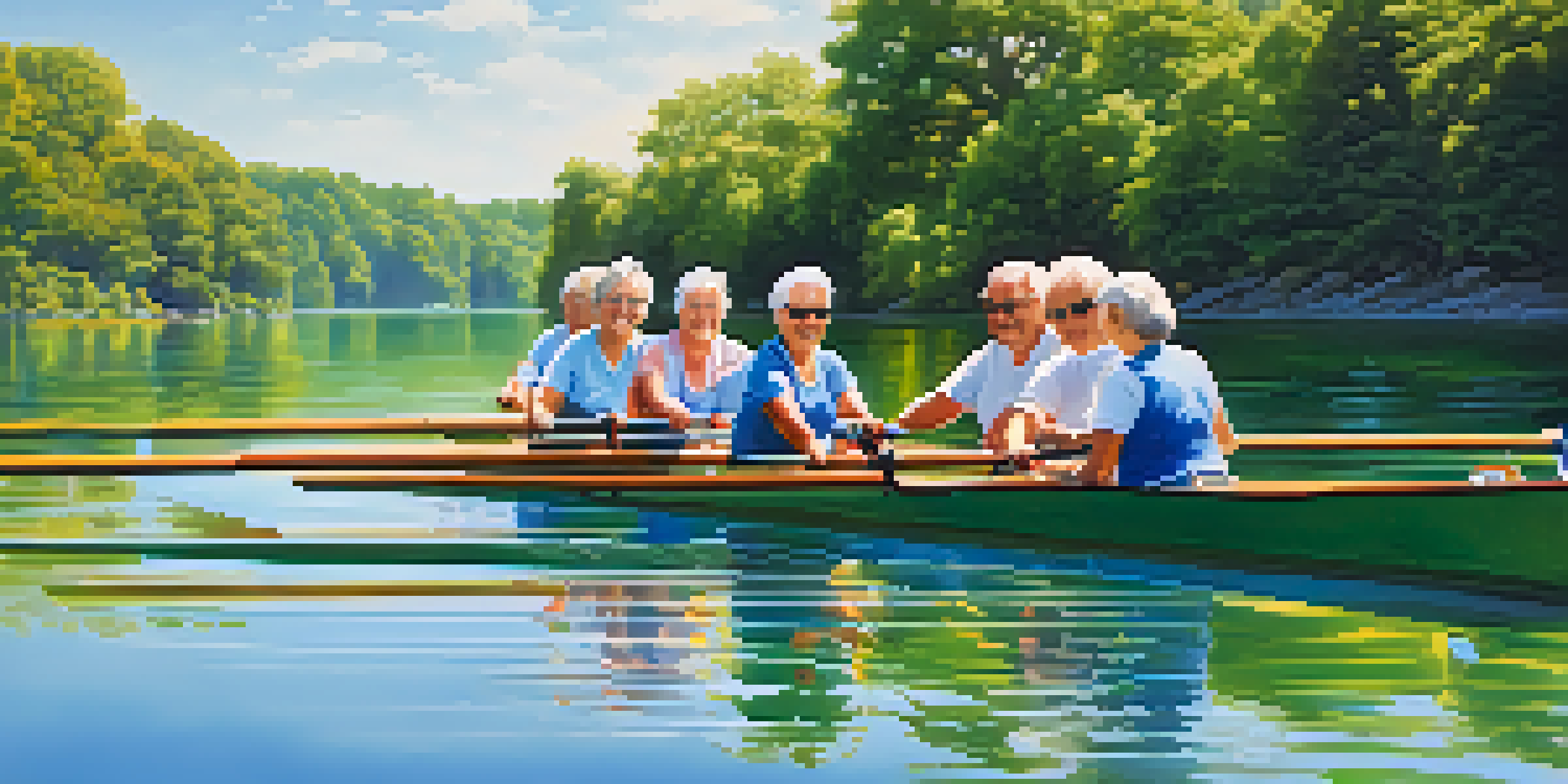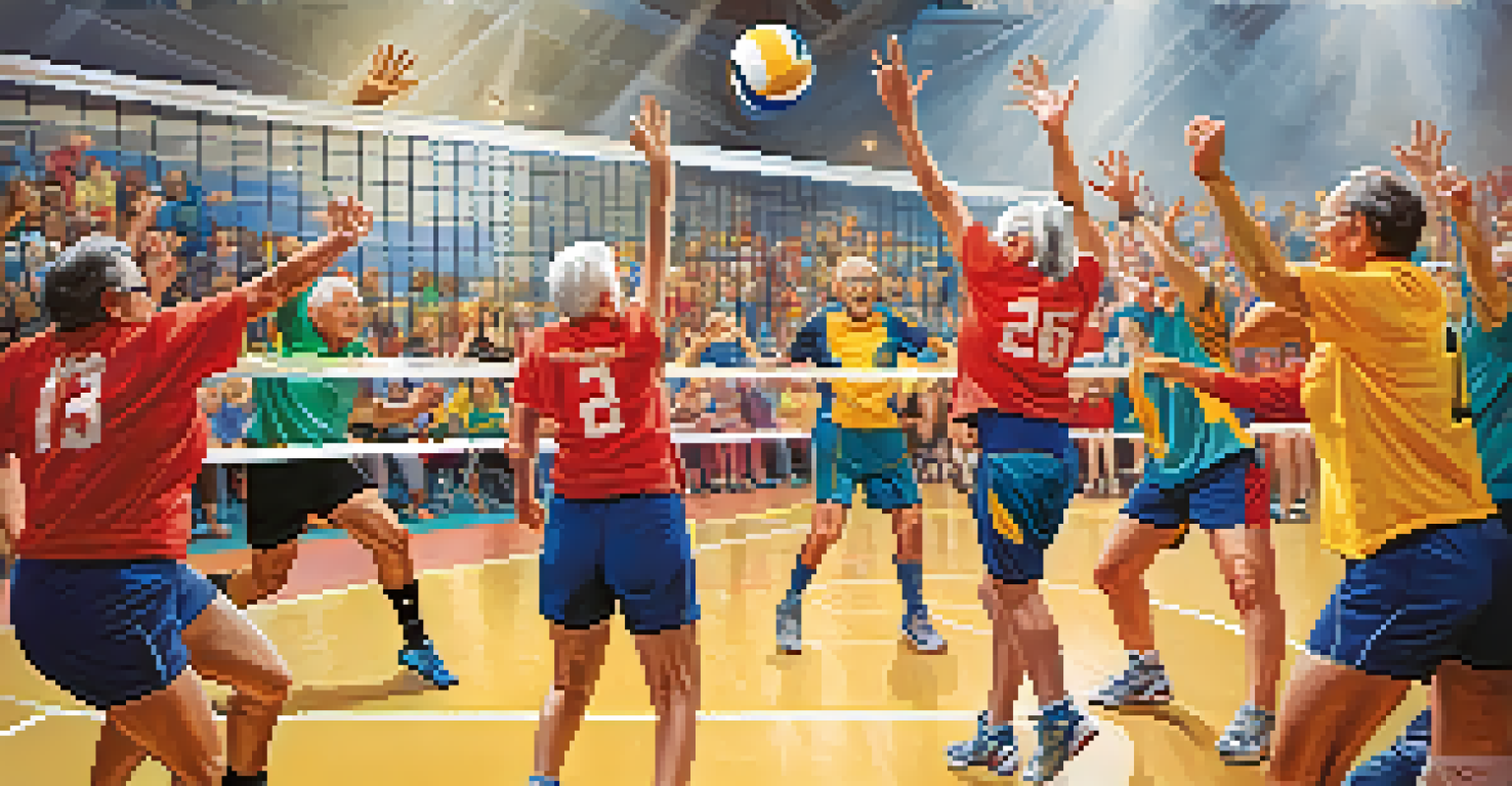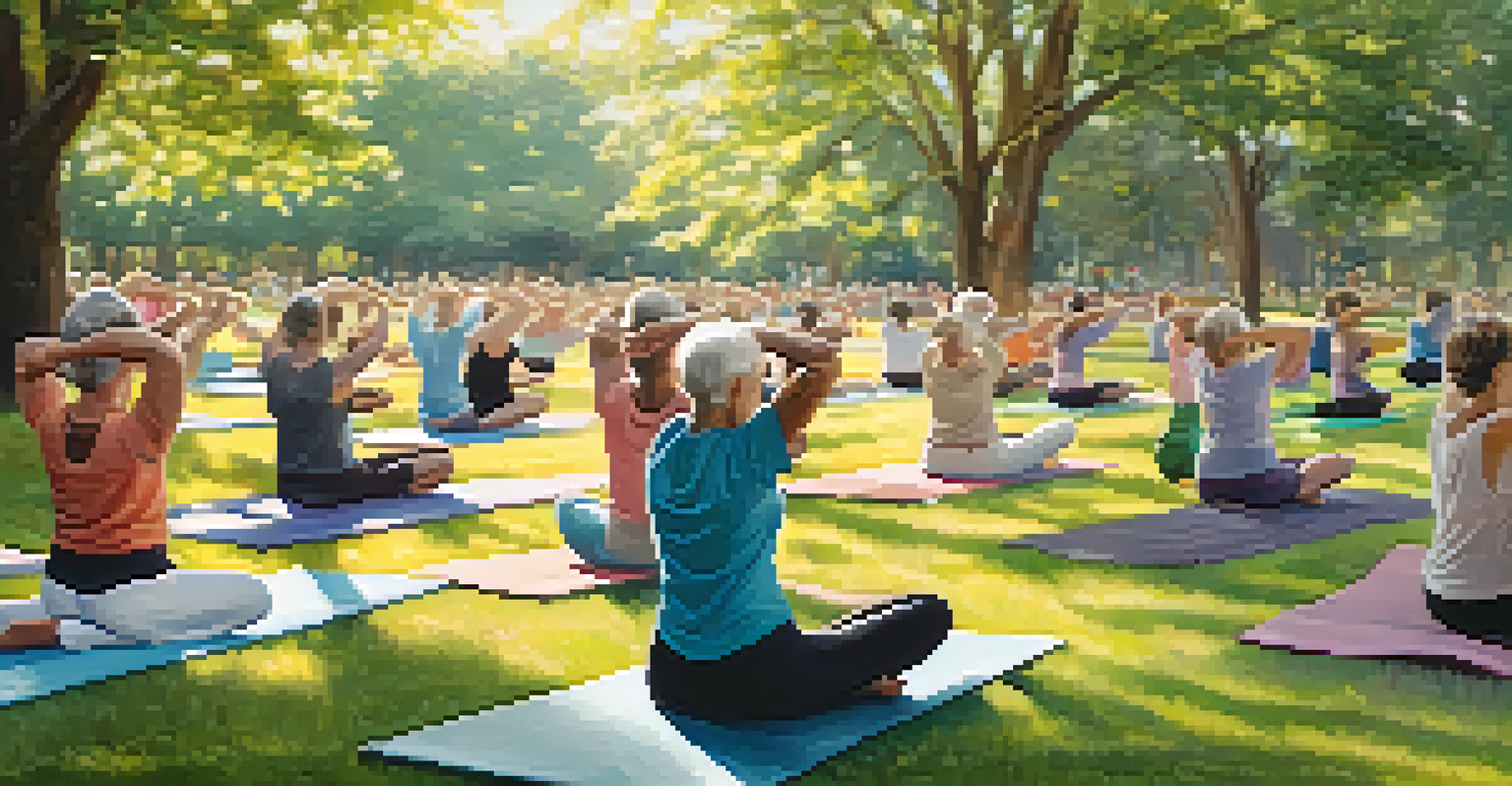Exploring Adaptive Sports for Seniors' Physical Fitness

What Are Adaptive Sports and Why They Matter for Seniors
Adaptive sports are modified versions of traditional sports, designed to accommodate individuals with varying abilities. For seniors, these sports offer a fantastic way to stay active while enjoying the thrill of competition and camaraderie. They also help in improving physical fitness, which is crucial as we age.
The greatest glory in living lies not in never falling, but in rising every time we fall.
Participation in adaptive sports can lead to significant health benefits, including improved strength, flexibility, and endurance. Moreover, engaging in these activities can foster social connections, combating the feelings of isolation that some seniors may experience. It's not just about physical health; it's about mental well-being too.
In essence, adaptive sports serve as a gateway for seniors to rediscover the joy of movement. Whether it's wheelchair basketball or adaptive swimming, these activities can empower seniors to embrace a healthier lifestyle and build resilience against age-related challenges.
Benefits of Adaptive Sports for Physical Fitness
Engaging in adaptive sports can significantly boost physical fitness among seniors. These activities help in enhancing cardiovascular health, improving muscle strength, and increasing overall mobility. For instance, activities like seated volleyball or adaptive cycling are excellent ways to get the heart pumping without putting unnecessary strain on the body.

Additionally, regular participation in adaptive sports helps improve balance and coordination, which are critical factors in preventing falls—a common concern for older adults. The structured nature of these sports also encourages a routine, making it easier for seniors to stay consistent with their fitness goals.
Adaptive Sports Boost Senior Health
Engaging in adaptive sports significantly enhances physical fitness and mental well-being among seniors.
Ultimately, adaptive sports not only promote physical health but also instill a sense of accomplishment and confidence in seniors. When they see improvements in their abilities, it can motivate them to keep pushing their limits and maintain an active lifestyle.
Types of Adaptive Sports Suitable for Seniors
There are numerous adaptive sports that seniors can explore, each catering to different interests and abilities. Popular options include wheelchair basketball, adaptive rowing, and even modified yoga classes. These sports are designed to be inclusive, ensuring that everyone can participate, regardless of their physical condition.
It's not how old you are, but how you are old.
Another exciting option is adaptive swimming, which is gentle on the joints and can be tailored to individual comfort levels. Water-based activities allow seniors to move freely without the fear of falling, making it a perfect environment for exercise. Plus, swimming is a great full-body workout!
With so many choices available, seniors have the opportunity to find a sport that resonates with them. The key is to choose an activity that feels enjoyable and accessible, ensuring they stay motivated and engaged in their fitness journey.
Getting Started with Adaptive Sports
Starting with adaptive sports can feel overwhelming, but it doesn't have to be. The first step is to identify local programs or organizations that specialize in adaptive sports for seniors. Many community centers and recreational facilities offer classes specifically designed for older adults, complete with trained instructors.
Once you've found a suitable program, it's essential to communicate any specific needs or limitations to the coach. This helps in tailoring the experience to ensure safety and enjoyment. Remember, it's not about competition—it's about personal growth and having fun while being active.
Variety of Inclusive Sports Available
Seniors can choose from numerous adaptive sports options, like wheelchair basketball and adaptive swimming, tailored to their interests and abilities.
Most importantly, encourage seniors to approach adaptive sports with an open mind and a willingness to try new things. The supportive environment often found in these programs helps foster friendships and creates a sense of community, making the experience all the more rewarding.
Overcoming Barriers to Participation
While adaptive sports offer numerous benefits, some seniors may face barriers to participation. These can include physical limitations, lack of transportation, or even the fear of trying something new. It's crucial to acknowledge these challenges and seek solutions to overcome them.
For instance, many adaptive sports programs provide transportation assistance or can connect seniors with local resources to help them get to and from activities. Additionally, addressing fears can be as simple as inviting a friend to join—having a buddy can make the experience less intimidating and more enjoyable.
By breaking down these barriers, seniors can unlock the door to a more active lifestyle. With the right support and encouragement, they can confidently step into the world of adaptive sports and reap the physical and social benefits that come with it.
Success Stories: Seniors Thriving in Adaptive Sports
Hearing success stories can be a powerful motivator for seniors considering adaptive sports. Many individuals have transformed their lives by participating in these activities, showcasing the potential for growth and improvement. For example, a senior named Mary found her passion for adaptive rowing after a hip replacement, and she now competes at a national level!
These stories highlight not just physical transformations but also the emotional and social benefits that come with participation. Seniors often report feeling a renewed sense of purpose, increased confidence, and stronger connections with peers. Such narratives can inspire others to take that first step towards an active lifestyle.
Overcoming Participation Barriers
Addressing challenges such as transportation and fear of new experiences can help seniors confidently engage in adaptive sports.
Ultimately, success in adaptive sports isn't just about winning medals; it's about celebrating every achievement and encouraging others to join in the fun. Each story serves as a reminder that it's never too late to start moving and enjoy the thrill of sports.
The Future of Adaptive Sports for Seniors
The future of adaptive sports for seniors looks bright, with increasing awareness and accessibility. Organizations are working tirelessly to create more inclusive programs and resources, ensuring that seniors can participate safely and enjoyably. As more seniors embrace adaptive sports, communities are beginning to recognize the importance of these activities for overall health and well-being.
Technological advancements are also playing a role in enhancing adaptive sports. From specialized equipment to virtual training options, seniors can now engage in sports like never before. This not only broadens their options but also allows for more personalized experiences that cater to individual needs.

As we move forward, it's essential to continue promoting adaptive sports as a valuable component of senior fitness. By fostering a culture of inclusivity, we can ensure that all seniors have the opportunity to thrive through physical activity and enjoy the countless benefits it brings.